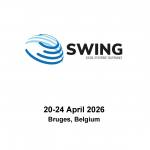The Indeterminacy of Policy Objectives: a Shortcoming, an Opportunity or Both? The Case of Sustainable Development and Sustainable Reintegration

The Indeterminacy of Policy Objectives:
a Shortcoming, an Opportunity or Both?
The case of sustainable development and sustainable reintegration
Tuesday, 11 February | 13:00 - 16:00 | UNU-CRIS, Bruges
Since its publicization through the 1987 Brundtland Report, sustainable development has been variously interpreted. Alongside the mainstream interpretation of environmentally sound economic growth, the conceptions of sustainable development either as a return to nature or as an opportunity for radical change have also grown in relevance. Based on whether one interpretation would prevail over the others or they would all blend in various degrees, different scenarios would concretely occur.
That has not been the case with the less renowned policy construct of sustainable reintegration, underpinning the increasingly popular Assisted Voluntary Return and Reintegration (AVRR) packages offered by host countries to migrants who return to their countries of origin. Despite retaining some degree of indeterminacy, sustainable reintegration appears to be understood similarly by the various organisations implementing reintegration packages. Academic debating around the substance of this policy objective also proves limited. Looking at their similarities, one would expect the paths of sustainable development and sustainable reintegration to finally converge. Both these policy objectives prominently feature in the United Nations discourse and were accordingly mentioned in the 2018 United Nations Global Compact for Migration. Furthermore, in their conventional conceptualisations, they have been both criticised as Western-centric and positivist.
The question then goes: will sustainable reintegration as an underdefined policy construct follow the same path as sustainable development or will interpretation conformity ultimately prevail? By giving a presentation on the various interpretations of sustainable development and sustainable reintegration that are to be found, PhD student Rossella Marino will encourage attending academic and policy-makers to exchange on whether to prefer semantic clarity towards solid policy outcomes or undetermined policy constructs as valuable protection against discursive hegemony.
What is the scope of the discussion?
Starting from concrete examples regarding sustainable development and sustainable reintegration, the discussion will revolve around the following questions: how is the indeterminacy of policy constructs dealt with in both research and policy? What are the empirical cases in which policy-construct indeterminacy bore positive results? Conversely, when did it lead to negative outcomes? How do alternatives to policy constructs’ conventional conceptions emerge and why?
Why it matters?
Policy constructs sit on specific articulations of knowledge which are in turn upheld by certain power configurations. On a closer look, it appears they are rarely clear-cut and fixed. However, the comparison of sustainable reintegration and sustainable development shows meaning fuzziness does not always lead to challenges to majoritarian conceptions. Understanding the dynamics of these diverse trends proves fundamental in the necessary evaluation of implemented policies, which are essentially the product of more or less (un)determined policy constructs.
Questions? Please contact: rmarino@cris.unu.edu.
This event is free but registration is required. A sandwich lunch is included.
Register here
Upcoming Events
Similar Events
No events found.


